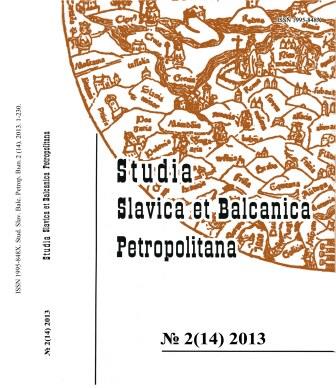От жупанов к архонтам: Социальная эволюция или нарративная конструкция?
From zupanoi to arhontes: Social evolution or narrative construction?
Author(s): Denis Eugenievich AlimovSubject(s): History
Published by: Издательство Исторического факультета СПбГУ
Keywords: Constantine Porphyrogenitus; De administrando imperio; early Slavs; Serbs; Croats; zupan; politogenesis
Summary/Abstract: The article discusses the passage from the 29th chapter of the Byzantine emperor Constantine VII Porphyrogenitus’ treatise De administrando imperio (c. 950) where is reported of how archontes, that are those who had hereditary power status, replaced so-called zupanoi-elders, who previously headed early Slavic societies in the Balkans. It was this information that was often considered a key evidence in favor of presumed stadiality of the development of Slavic social organization transformed from originally acephalous society (the zupanoi period) to a politically organized society in which there existed a princely power (the archontes period). The author raises a question to what extent the interpretation of this passage from the perspective of social evolution was determined by the information of the source itself, and by the theoretical context of current ideas about the nature of early Slavic society. Having examined the passage in the context of Constantine Porphyrogenitus’ perception of the early history of the Serbs and Croats, the author concludes that the passage on zupanoi and arhontes is not only ideologically motivated construction. In the case of this passage we deal with one of the first theoretical explanations of social evolution in barbarian society. The explanation proposed by the emperor looks so plausible and logical that harmonizes with current theories of acephalous society and secondary state formation. Meanwhile, the author argues, the real social development of early Slavic society was much more complex.
Journal: Петербургские славянские и балканские исследования
- Issue Year: 2013
- Issue No: 2
- Page Range: 14-55
- Page Count: 42
- Language: Russian

